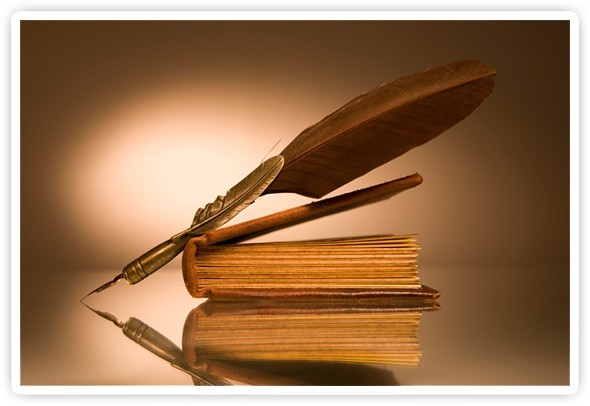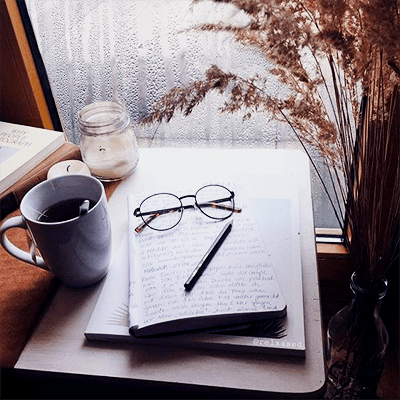Poetry is an emotion that ceases your mind for a moment and let your heart feel the sensation. Ever dreamt of writing a poem? Ever wondered how words can touch someone’s heart? Ever emphasized on how to write a poem?
Poetry is a form of art, Feel it from the deepest of your heart, Travel with the dazzling tales to the gloom, A journey to remember from ecstasy to doom.
Ever wondered how a bunch of words forms such a beautiful sculpture? For writers who wish to carve deep, composing rhymes lets you experience new glints of wisdom. And if you are composing a poem for a less rhetorical reason, composing an extract from the deepest of your imagination can teach you how to have fun with words. Do not emphasize much on how to write a poem in English.
Words and verses can change the game,
It’s poetry and the magic lie within its name.
Table of Contents
How to write a poem in Hindi or English?
If you wish to write a poem to pen down your feelings or emotions, then there is no need for all these tips. Just trace your feelings on a paper because it’s you who have experienced the feeling, the emotion, and the moments. In that case, only you can assess whether your poetry expresses your true emotions or not.
If, however, you aim to convey your emotions or experiences to a reader and wish to connect heart to heart then simply tracing your emotions on paper will not be sufficient.
Poetry is an art, a form of creative writing that not everyone in this world can connect with. Poetry is a tremendous expressive and imaginative way of conveying one’s stances. If you wish to learn how to write a poem in Hindi or English, explore your imagination.
Among many, there are only a few writers who can write good poems. Others just keep writing blindly without considering what it takes to write and label it as “poetry.” Why? Because they have been misguided and don’t know about its particular ingredients.
Learn How to Write a Poem

Poetry writing can never be learned,
Feel it and fate will be earned.
Pour your thoughts in the ocean of words,
It’s not easy to comprehend the chirping of the birds.
If you are tempted to try your hand on writing poetry and want to take your internal emotions out but you’re not confident about where to start from, you are at the right doorstep. So are you tempted to learn how to write a poem?
Brainstorm your ideas or expressions
Writing poetry involves the functioning of the heart more than the functioning of the mind. There is no need to force yourself up for writing the poem in order, rolling from the first line to the end. Instead, start with the first idea that your brain picks up and try to mold it in verses.
Your initial point or idea can be a phrase or a line you want to entail in your poem. Need not worry about whether it’s in a form of language or not. You can visualize a scene or a situation or an experience in your mind, as particular as the innocence of a child or blooming of a flower. It can also be a complicated feeling you wish to tender or a memory you wish to return to. Think of this initial idea as the way to your poem and pour your heart into words. To write a masterpiece you need to choose an idea that interests you. The expression you can feel within your soul.
Love and Cherish your Poem – How to write a poem
If you are worried and not confident about the expression or verse you have thought about, better to stop there. A poem pours your heart and expression out. A deep meaningful poem is the one that is loved and lived by the poet. To write a masterpiece, it is a must to feel every word of it, as a poem is appreciated by the audiences only when it is loved by the poet. While thinking about how to write a poem in English, also think about what will make you cherish your poem.
Think of expression or idea that touches your heart and brings you sorrow or happiness.
Stars twinkling up in the sky,
Appears near but is so high.
The above lines connect us with the stars and their twinkling sparkle. It makes our heart wonder what seems so close might not be true.
Pour your heart in prose
Now when you have got an idea and a starting point, it’s time to work out your fingers. This is the time to pour your thoughts into words but not verses just yet. Rather dwell into the feeling, theme, and expression of your idea and pour it down with language. It’s not at all difficult to discover how to write a poem in Hindi or English.
How to start writing your expressions into a poem?
Wondering how to write a poem in Hindi or English. Think for at least 10 minutes and note down anything that clicks your mind when you think of your initial idea. You can write it in a nice format, do mind mapping, or can even sketch your idea. The main purpose of this exercise is to develop a trove of inputs, to immerse you deep down into your thoughts and draft your fragments to pour your thought into a poem in earnest.
The most vital and significant part of this free-write is not expurgating yourself. Emerge yourself in a cave of phrases, move around with rhetorical endings, or mentally grumbling. Do not let go of your concentration and the expression you have developed in the past few minutes. Visualize your expressions, pour your words, and frame down your verses to take away the curses.
Choose a style and form of your poem
Once your 10 minutes exercise is up, take a glance at the treasure you have procured. Chances are you have secured inarticulate emotions and words and phrases that trail off your imagination. Now when you have secured a treasure of your imagination into jumbled words and phrases, you are ready to move ahead towards your poem.
Think of your treasure as a wad of marbles richly coated with sparkle but lacking a proficient form. It’s time to take up your blocks from your treasure and transform it into a beautiful sculpture. Transforming into a sculpture refers to shaping your words be it classical or restrained.
The admirable beauty of our earth,
Carrying the cycle of death and birth.
Now when you have started framing your verses, it’s time to decide whether you want to build a sonnet or the rhymes. Should one follow the more specific rules like building the rhymes of a sonnet or syllabic limitations of a haiku? Even if your notes beg for a poem with no formal restrictions, you will still have to choose the tone and texture of your language. Think of some trail where your poem will fall.
Reading lends you Inspiration
A poem is neither a historical novel, not a nonfiction book. You are certainly not required to research to write a decent poem. However, a little reading can stave off your inner writer and bestow to inspiration throughout the poetic journey.
Carve an abrupt syllable around your thoughts and the subject and form of the poem. Books can help you discover the deepest of your thoughts. Books can lend you with sensorily rich and linguistically phrases and verses. Suppose if you wish to carve the relationship of a father and daughter, you’ll want to read and explore some key imagist writings, alongside some poems that depict the arduous versions of their togetherness. If you visualize to carve the beauty of nature, you might look at your surrounding to seek inspiration.
Blooming of a tree,
A tree that sheds its bark,
Lighting from the moon,
The moon that shines in dark.
In case you don’t wish to limit yourself to poems that bound you with a style of your own, you can refer to the poems of poets like John Keats, Edgar Allan Poe, G. Starke, Elizabeth Bishop, and Pablo Neruda.
Some of the best readings you can refer:
Milk and Honey by Rupy Kaur
The Prophet by Kahlil Gibran
100 Love Sonnets and Twenty Love Poems by Pablo Neruda
100 Selected Poems by John Keats
You are the best audience for your writings
It’s finally time to heave from inspiration close at hand,
Get ready to free write your first poem, my friend.
Rejuvenate your spirits from low to high,
It’s time for your little mermaid to fly in the sky.
Are you ready to draft your first poem? After all the exploratory thoughts and thinking processes, you are finally ready to draft your first poem. But the pressure of writing your first poem can awake your poetry fear. To keep the anxiety away from you, write your first poem for yourself and not for the superficial audience.
Poets can determine the validity of their artwork. A decent poem will bestow a much higher level of satisfaction and slowly and gradually you will improve with your every masterpiece. Your thoughts may defer at every stanza of your poem. Few lines will touch your heart while some will depict the moto of your life. Soon you will discover the real you with your poetry. Your poetry will certainly leave an impact on your life. You might also find that certain lines have influenced your personality and the way you look at things. This is when you will realize that you have made it.
Keep Your First Poem Closer to your Heart
Soon you might eventually polish your art pieces and might decide to publish your work down the line. There are many magazines and publishing companies that accept poetry submissions to get started. But treat your first draft closer to your heart and treat it like it’s been written just for your eyes.
Poetry can build the spirits or can make you feel low,
It can roll down tears or can make you glow,
Its magic can make your heart skip a beat,
Poetry can make the winters blaze up with the heat.
A good poem does not need to be beautiful, maybe a simple melodic loveliness is not what you are aiming for. Your poem should however come alive, written down from the heart following a rhythm. To achieve the rhythm, read your poem aloud as if you are reading for someone else. First, go line by line, then take it all together as a complete text.
Although it is dark, everything seems so bright,
That I have fallen in love with the moon, the stars, and the silence in this midnight.
Reading out loud can help you notice the line breaks that are not matching with your poem’s rhythm. You may notice some of your lines are naturally too long, which will ultimately require you to rush through it to match the rhythm of the poem. So here you might want to give the reader some breathtaking time.
Take some rest and refresh your mind

By now, your first poem has come together. It may not be a meticulous or perfect just yet, but congratulations on writing your first poem.
Now keep aside your poem for a while. You have probably gone through it several times. For a week take some rest, read some novels, or just plan your next poetic project. Then after a week come back all refreshed because your work is not yet done. After learning how to write a poem in English, you are still left to revise your poem.
Read and Revise your poem
Revising a poem is an open-ended procedure that expects tolerance and an understanding of the play.
Be calm and have fun while you reside in your poem. Don’t take it as a serious task and enjoy every bit of your emotions. Poems may look like an extract of what you usually write. Poems can be read in a breath but it takes years to depict the real emotions engraved in it. With time, it’s meaning changes and evolves a new conclusion. The most significant aspect is to find yourself a peaceful place where you can enjoy every bit of its sentiments and listen while you read it.
10 Ways To Improve Your English Language
How to write a poem to express emotions and sentiments
Becoming a poet – A process to read emotions
Writing verses implicates not just scribbling on a price of paper, but also comprises an understanding of a way of life, one which signifies being sensitive and creative. To write promising poetry you need to work on the following:
- Excavate as much as you can about the art of poetry. Read several poems. Converse with other poets. Evolve yourself in a community of poets. Look for a mentor to counsel you. Attend workshops and poetic readings. Join writing classes.
- Evolve sensitive both to the language and to life. Discover your emotional perception of what is beautiful in poetry and life.
- Think diversely, relax your mind, keep it nimble and open, and be inclined to dream in different directions and ways. You never know what might inspire you and in what form. All you can do it to be prepared to welcome it with your emotions, imagination, and words.
- Spare some time for yourself to write. After all, you will be a writer only when you write.
- Stay devoted. Rewrite your verses on repeat. Do not settle for cliches or anything that sounds similar to other people’s language. The notion is to discover what sort of poetry belongs to you. Congratulations! You have finally learned how to write a poem.













